Berlin, 14 Dzulhijjah 1436/28 September 2015 (MINA) – The number of Syrians risking life-threatening journeys to Europe is increasing daily, as are casualties.
Neighboring Turkey hosts some 2 million Syrians, and has spent nearly $5.6 billion on humanitarian assistance for them, including social services, healthcare, schooling and construction of camps, Al-Arabiya News quoted by Mi’raj Islamic News Agency (MINA) as reporting.
However, Ankara does not grant them refugee status, so they do not fully benefit from refugee rights.
Discrimination in Turkey toward Syrians, especially in border towns where Syrians outnumber Turks, is rising. The resulting despair is pushing Syrians to leave the country.
Also Read: Protesters in London Denounce Israeli Violations of Gaza Ceasefire
Mustapha, whose name has been changed out of fear for his safety, arrived in Turkey two and a half years ago via the southeastern border gates, and went to Istanbul to work as a freelance graphic designer.
He was a rights activist in Syria before the war broke out, escaping due to fear of arrest by the government.
“It’s not enough for Syrians in Turkey to be alive. People leaving Turkey to Europe have understood that they don’t have a brilliant future here,” Mustapha told Al Arabiya News.
“If you don’t have a right to work, if you’re living everyday under pressure, if you don’t know how to pay rent or buy food, if you can’t provide education to your children, and if you realize that you work for nothing, you can’t stay in a country for a long time.”
Also Read: Russia Defends Indonesia, Calls IOC “Hypocritical” Over Israel Visa Dispute
He added, “It’s time that the international community supports us and meets our needs.”
The U.N. refugee agency UNHCR and the EU “should assist Syrian refugees in crossing the border from Turkey’s northwestern gate in normal ways rather than pushing them toward high-risk journeys.”
Some 7,000 Syrians were caught and turned back last week from Turkey’s northwestern province of Edirne, where they were trying to cross into Greece and Bulgaria.
Metin Corabatir, president of the Ankara-based Research Center on Asylum and Migration, and a former UNHCR spokesman in Turkey said the refugee influx into Europe should be addressed by a comprehensive contingency plan.
Also Read: IOC Suspends Indonesia’s Bid to Host Olympic Events After Visa Refusal for Israeli Athletes
“For instance, neither Turkey nor Europe have an updated database on chronic diseases. If there are relevant figures, the EU could provide medical equipment to Turkey and avoid some refugees fleeing to Europe just to get better healthcare,” said Corabatir, adding that the EU and Turkey should increase their sea rescue missions.
On Sept. 15, at least 22 Syrians, including four children, drowned in a wooden boat off the Turkish coast while trying to reach Greece.
“Public information campaigns are needed, about the risks of taking dangerous routes to realize the so-called European dream. They should know in advance that there’s no rosy picture awaiting them in European countries,” Corabatir said.
Experts say the EU and Turkey should work on effective police measures against people-smugglers.
Also Read: ICJ Rules Israel Must Facilitate Humanitarian Aid to Gaza Under Geneva Convention
German Chancellor Angela Merkel and Turkish President Recep Tayyip Erdogan had a phone call on Sept. 16 to discuss the refugee crisis.
Deniz Senol Sert, an immigration expert at Ozyegin University in Istanbul, says Turkey and the EU should share information transparently with refugees.
“Information is shared faster by people than governments. This is also true of wrong information,” Sert told Al Arabiya News.
“Nowadays, we hear that people along the coasts of Turkey are waiting for Germany to send a ship to come and pick them up.”
Also Read: Israeli Fans Riot in Tel Aviv After UK Ban
Sert said closing borders would only make people more vulnerable. “Such controls don’t help, and increase people-smugglers’ prices.”
Sert said providing physical protection was not enough, and people need rights, including the right to work, health, education and mobility.
She pointed to the need for further cooperation between civil society organizations and the countries that face immigration problems.
“Especially in the case of Turkey, civil society has been actively involved in assisting with refugees’ problems, despite the restrictions they’ve faced filling in an important vacuum created by the state.” (T/P006/R03)
Also Read: UK Bans Israel Supporters from Maccabi Tel Aviv Match at Aston Villa
Mi’raj Islamic News Agency (MINA)
Also Read: IOC Urges Indonesia to Grant Visas for Israeli Athletes





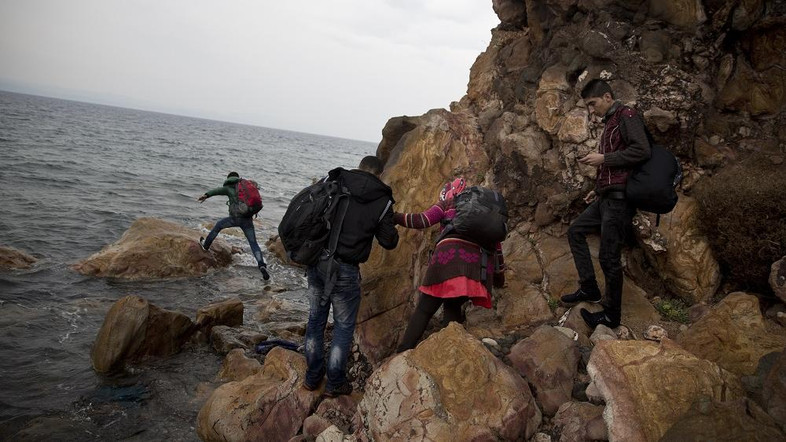



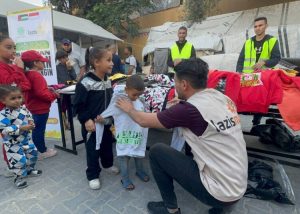






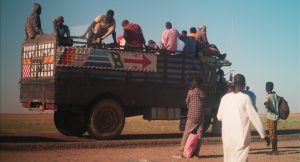


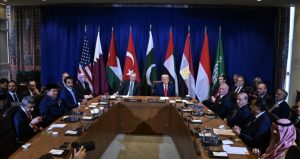
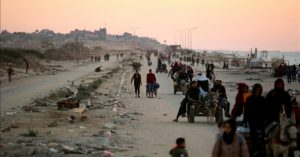




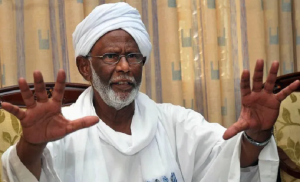


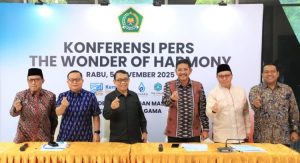

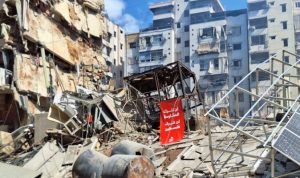





 Mina Indonesia
Mina Indonesia Mina Arabic
Mina Arabic